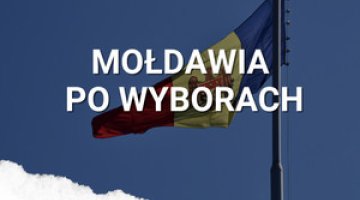Moldova: the refugee crisis and the Russian threat
On 5–6 March, US Secretary of State Antony Blinken visited Chișinău where he spoke with president Maia Sandu and Prime Minister Natalia Gavrilița, among others. The talks focused largely on the rising wave of refugees arriving in Moldova from Ukraine, as well as other challenges caused by the Russian invasion. Responding to Sandu’s call for financial assistance and the creation of clear mechanisms to allow the transit of refugees through Moldova to the West, Blinken promised US support, hinting that Chișinău would be able to count on some of the funds from the planned $2.75 billion package dedicated for countries helping refugees from Ukraine. He also stressed US support for Moldova’s territorial integrity, and announced investments in its energy sector to make the country more secure in this matter. In the first days of March, the authorities in Chișinău discussed the refugee crisis and regional security issues with visiting EU representatives: the High Representative for Foreign Affairs and Security Policy Josep Borrell, the Commissioner for Neighbourhood and Enlargement Olivier Várhelyi and OSCE Secretary-General Helga Schmid, among others.
Commentary
- Moldova is the country most burdened per capita by the influx of refugees from Ukraine. According to various sources, there are currently around 100,000 refugees on its territory, which represents 4% of the total population of Moldova (around 2.6 million). Caring for such a large number of people poses a huge challenge for the country, which is one of the poorest in Europe, and threatens to collapse its public finances, which are already under severe strain (as much as 23% of the planned budget expenditure for 2022 is to be financed from the deficit). The state budget had already been put under an enormous burden in recent months by the gas crisis, which has been caused by rising prices and Gazprom’s confrontational attitude towards Chișinău. Since November 2021, the government has had to financially support the local gas operator so that it could pay off its debts to the Russian company. The state is also compensating its citizens for the increase in gas prices. The expenses related to all those measures exceed US$100 million, which is around 3.7% of the planned budget revenues for 2022. So far, Chișinău has received financial support to help the refugees from Lithuania (€750,000) and Romania (in the form of fuel), among others. The UN has also organised humanitarian aid shipments to Moldova.
- This series of visits and declarations by Western politicians are intended to serve as demonstrations of political support for Moldova, which is under increasing threat from Russia. If Russian troops land in the Odessa region, they will gain direct access to Transnistria. The government in Chișinău is closely monitoring the actions of the breakaway region’s authorities. On 4 March, in response to Moldova’s application to join the EU filed the day before, Tiraspol called on the Moldovan authorities and the international community to recognise Transnistria’s independence. This step was probably consulted with Russia, and Moscow may use it as a pretext for a possible incursion into this separatist enclave. More likely, it could serve as an argument to resolve the Transnistria problem in the way Russia has been pushing for decades (but this time under the threat of military intervention): by establishing a federation, in which Tiraspol would gain the right to block Chișinău’s decisions in the field of foreign policy.





